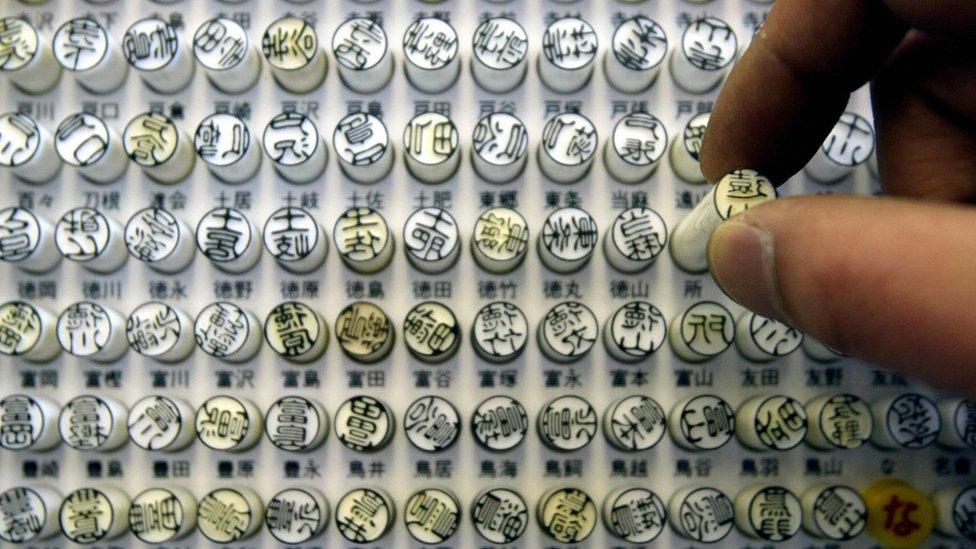Japan's Rakuten retail site bans ivory sales
- Published

Personal seals called "hanko" can be made from many materials - from stone and metal to ivory
One of Japan's largest online retailers has banned the sale of ivory, closing a major marketplace for the controversial trade.
Rakuten is accused of being the world's largest online retailer for elephant ivory, but will now phase out its sale.
The trade is legal in Japan for items imported before 1989 - but no new stock can be brought into the country.
Many other countries have banned the trade outright over concerns that it contributes to elephant poaching.
Rakuten also banned the sale of sea turtle products on its site, telling AFP news agency it was responding to "growing international concern".
"We expect it will take 1-2 months for all listings of these prohibited products to be removed," it said.
On the day of the announcement, a large number of ivory items were still listed for sale, including many carved personal seals known as "hanko".
Sellers of such items are expected to maintain careful records of their origin, and use only government-regulated ivory stockpiles.
But activists believe the rules are often circumvented and the precious material is often smuggled across borders.
Yahoo Japan, another site which allows the sale of ivory, has previously come under fire for the practice.
However, a spokesman told Reuters it did not plan to halt the trade, saying: "We don't think that the legal ivory trade in Japan has any impact on African elephant numbers."
"It is important to recognise there are cultural differences between different countries," he added.
African elephant numbers have plummeted in the last century, and there are an estimated 500,000 remaining on the continent.
China, a traditional powerhouse in the ivory trade, announced in December that it would ban all ivory activities and trade by the end of 2017.
Conservation groups hailed the decision as "historic" and a "game-changer" - but ivory artists have lamented the loss of a traditional craft.
Japan's ivory trade criticised
- Published31 March 2017
- Published27 January 2016
- Published28 April 2016